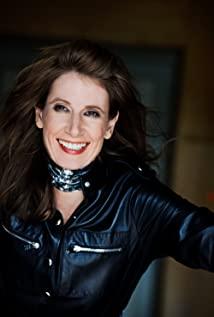"In Auschwitz, no one dies, but corpses are constantly being created." Auschwitz is a place where any group of people can turn any group of people into corpses. When we talk about the Holocaust during World War II, we will say it was inhumane, we would say it was inhumane, and we strongly condemn the disregard for the life of the knives. In the past, when we talked about wicked people, we always thought that they must have "green face and fangs", showing a completely different appearance from "normal people". However, when people experienced the brutal suppression of Christianity by the Roman Empire and the ethnic cleansing of Jews, Having experienced the slaughter of unarmed people in various wars, it is always painful and horrifying to find that the executioners are not all the devil Mephisto who treats blood as wine, most of them just obey indifferently Order, cruelly end one life after another. And when these gangsters take off their uniforms, they will go back home and hug their relatives and friends affectionately.
They are not a certain group of people, not a certain kind of person, but can be anyone. Some people think that there are always many good people and few bad people in the world; some people think that the world is sinister and people's hearts are not ancient, but neither the former nor the latter tend to define themselves as "evil people". In history, in reality, there are only a few people who will be nailed to the pillar of shame by the public. Some of these people are considered violent, some are labeled as psychologically distorted, some are arrogant to the extreme, and their "Evil" is distinct, special, distinct from most other people, and distinct from the identifyr's own. But is evil always so easily identified? People can easily recognize evil in others, but are innately ignorant of the potential for evil in themselves. Those who dare to claim that they can pass the test of humanity are either saints or hypocrites. It is very easy to take a stand and criticize those of different standpoints, but who can guarantee that if he is in the position of being criticized, he will be able to make a different choice from him? Evil can be mediocre, evil can be understandable without another reason, but evil can also be "imaginable" without another reason. Mediocre evil lurks among most people. Under certain circumstances, evil may spread quietly, engulfing and covering the lives of one person or many people. From then on, it burns like fire, and the production will never stop. of pain.
Banal evil is a possibility in human nature. The victims of the concentration camps rightly hated the Nazi officers who planned and executed the ethnic cleansing plan, and the executioners should be responsible for the 6 million lost lives. No harm is easy, no forgiveness is deserved, and yet, Hannah Arendt's bravery and tenacity lies in that, as one of the victims of a plan of ethnic cleansing, she can be angry in front of others. Be obvious, think calmly, and understand in your own shoes. Maybe she is really indifferent, maybe she is really arrogant, but what she has done deserves everyone's respect. People born in peaceful times can't feel the cruelty of war. After anger and pain, emotions pass by like strong winds, and eventually disappear in time. Only a few records in history books and people like Alena leave us. thoughts and warnings. When will the tragedy happen again? How can we make the tragedy never happen again? Mediocre evil and "thinking" are mutually exclusive, but such thinking refers to critical, reflective, philosophical thinking. Descartes doubted everything once, to the point where there was only "I am doubting", the last doubt at the moment, and it was impossible to doubt, and found that I was doubting with my existence as the support point, from which the philosophical conclusion was drawn. First principle: "I think therefore I am". This kind of thinking that doubts everything should be a wonderful way to decipher the evil of mediocrity, to peel away the loose soil and reveal the solid rock, and then build a edifice of self-thought on this basis, and use thinking to fight against the evil of mediocrity. However, this kind of thinking is not feasible to generalize, so how to crack the banal evil? The most terrifying thing is not just death, but you suddenly discover that maybe one day, you may also become a persecutor, you may also raise the butcher knife in your hand without hesitation, just don't know, the next Auschwitz Where? There, will you be a knife or a fish?
View more about Hannah Arendt reviews










